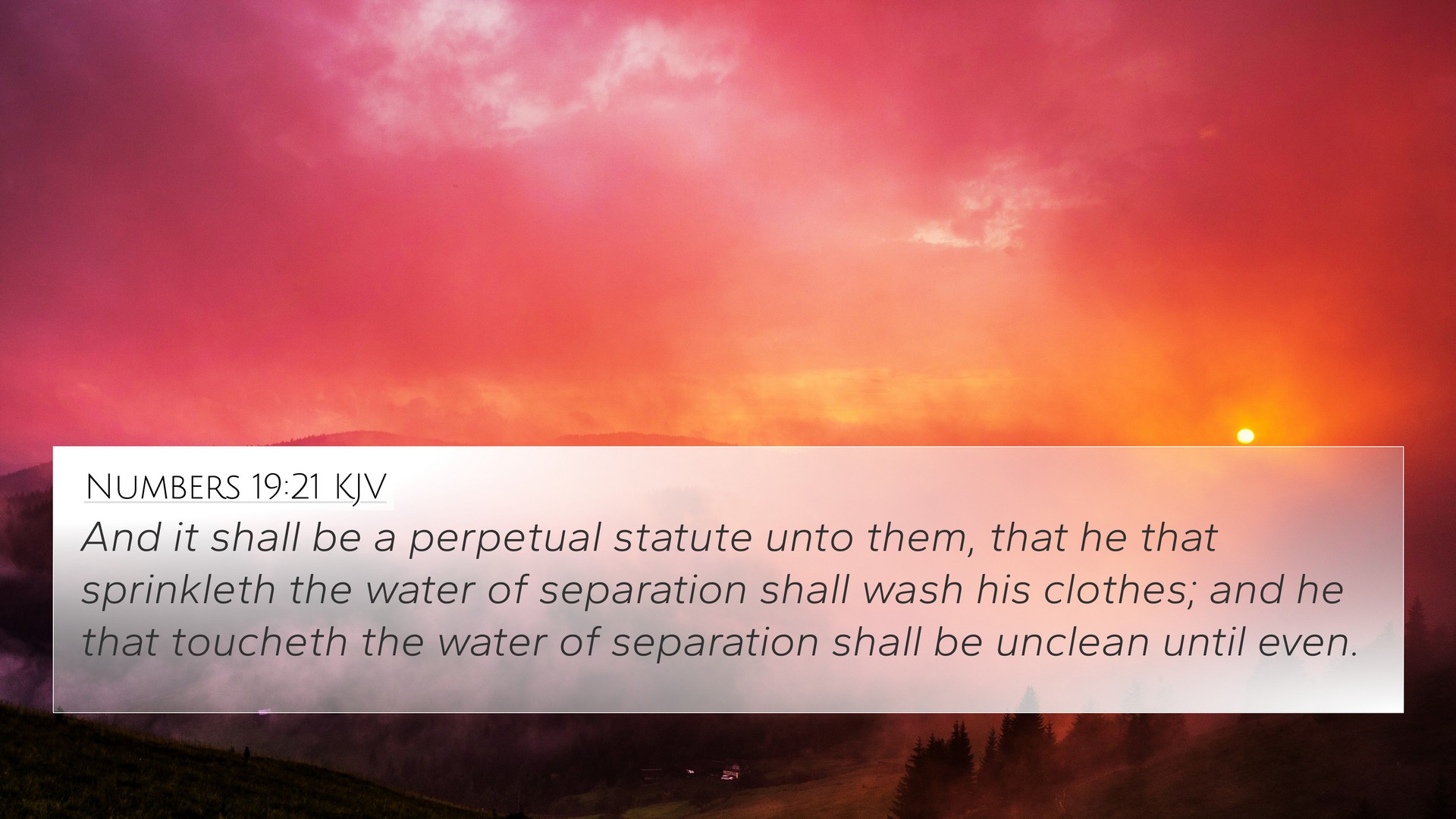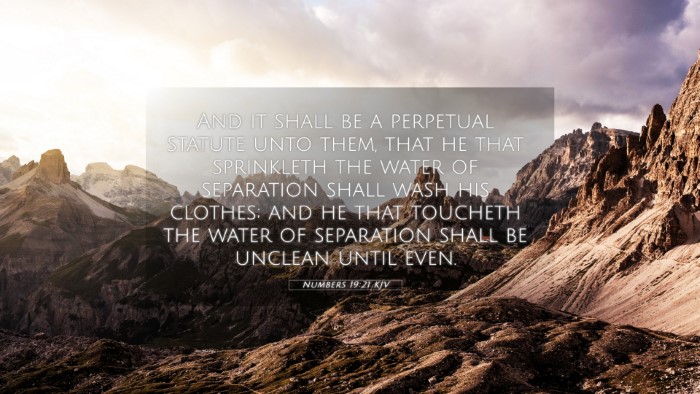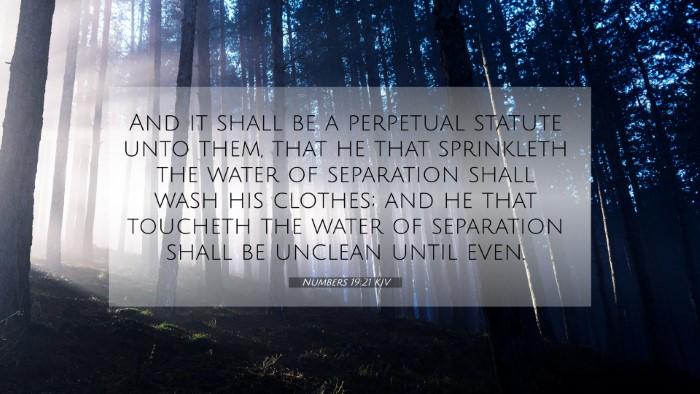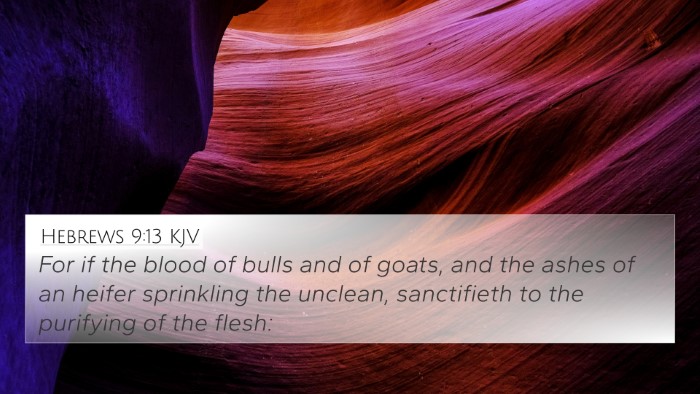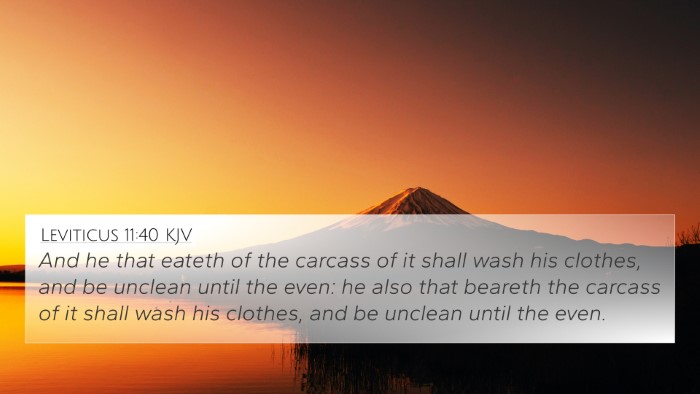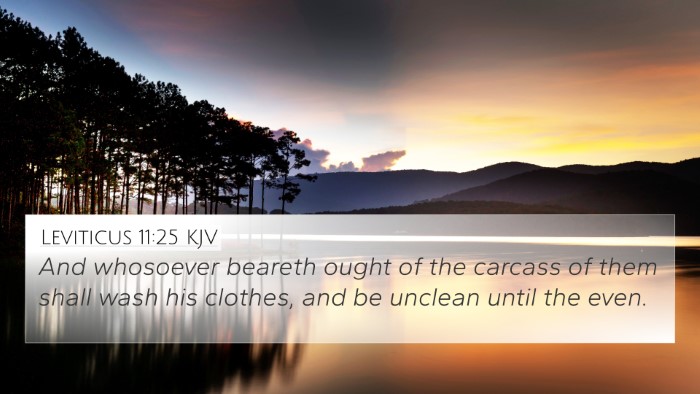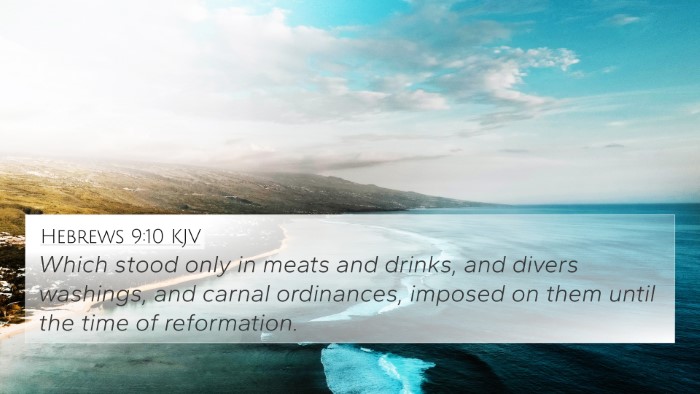Understanding Numbers 19:21
Numbers 19:21 reads, "And it shall be a perpetual statute unto them: that he that sprinkleth the water of separation shall wash his clothes, and he that toucheth the water of separation shall be unclean until the even."
This verse forms part of the instructions regarding the purification ritual for those who have become ceremonial unclean, especially in relation to death. The commandment is described as a perpetual statute, indicating its ongoing significance in the life of the Israeli community.
Insights from Public Domain Commentaries
Combining the interpretations from prominent biblical scholars:
-
Matthew Henry:
Henry emphasizes the seriousness with which God addresses ceremonial cleanliness. The act of sprinkling with the water of separation symbolizes a deeper spiritual cleansing necessary for those who are unclean. He interprets this ritual as instrumental for illustrating God’s holiness and the need for purification in our approach to Him.
-
Albert Barnes:
Barnes highlights the repetitive nature of the command, stressing that it reinforces the importance of purity in the community. He states that this perpetual statute serves as a reminder that even physical acts (like washing) are a reflection of internal spiritual states.
-
Adam Clarke:
Clarke provides a contextual understanding, observing that the "water of separation" is a divine provision for those who have encountered death or sin. He notes that touching the water signifies accepting God's means of grace and purification, reminding believers of their continual need for cleansing.
Verse Meaning and Application
The essence of Numbers 19:21 points towards the ongoing need for spiritual cleanliness and the active role individuals must play in maintaining that cleanliness. Each act described – from sprinkling to washing – serves as a tangible reminder of their relationship with God and adherence to His laws. The verse also prompts reflection on personal conduct, showing how external actions reflect our inner faith.
Related Bible Cross-References
- Hebrews 9:13-14 - Discusses the cleansing of the conscience through the blood of Christ, paralleling the purification rites in Numbers.
- Matthew 23:25-26 - Jesus commands the Pharisees to cleanse the inside of their cups, indicating the need for inner purity.
- 1 Peter 3:21 - Relates to the concept of baptism as a form of outward purification and a commitment to a new life.
- Psalm 51:7 - David requests to be cleansed and made whiter than snow, similar to the biblical theme of purification.
- Leviticus 14:8 - Outlines the cleansing rites for those healed of leprosy, aligning with the necessity for ritual cleanliness.
- Matthew 5:8 - Pointing out the blessedness of the pure in heart, linking moral purity with divine favor.
- 1 John 1:9 - Encouragement that confessing sin leads to cleansing, resonating with the themes of Numbers 19:21.
Thematic Connections Between Bible Verses
The act of maintaining ceremonial cleanliness through the law in Numbers relates to overarching themes in both the Old and New Testament regarding purity and the nature of sin. As believers examine the connections between these various scriptures, they uncover a broad biblical narrative focusing on redemption, restoration, and divine holiness.
Exploring the Broader Context
Recognizing that Numbers 19:21 is set against a backdrop of Israel's wilderness wanderings invites further exploration into themes of divine instruction, societal structure, and community wellbeing based on adherence to God's statutes.
The Importance of Cross-Referencing
Engaging in a cross-reference Bible study helps uncover layers of meaning within biblical texts. By linking scripture, studies can facilitate a deeper understanding of connections such as:
- Identifying connections between Old and New Testament texts - Allows for a comprehensive overview of God’s unchanging nature and promises.
- Cross-referenced themes in theological studies - enriches the understanding of doctrines like sin, redemption, and grace.
- How to use Bible cross-references for sermon preparation - Assists ministers in illustrating biblical truths effectively through comparative analysis.
Conclusion
Numbers 19:21 provides vital insight into the constant requirement for spiritual purity among believers. By examining related verses and engaging in a cross-referencing methodology, individuals can gain a deeper understanding of the Scriptures and their application. This interconnectedness not only fosters a richer theological perspective but also enhances personal faith experiences.
